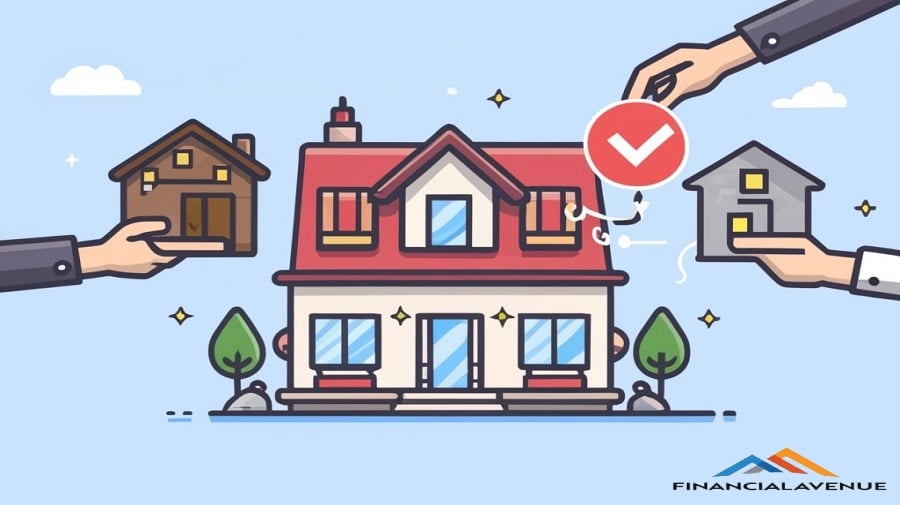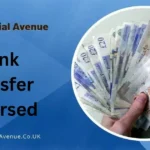Buying any property comes with an array of associated expenses, burdens, and financial costs. However, a leasehold property has some unique potential disadvantages that all prospective buyers should fully understand and consider before making a purchasing decision.
While leasing the land a property sits on can seem like an affordable way to enter the property market, this complex ownership structure carries major risks that could cost you time, money, and undue stress down the road.
Key Takeaways
- Risk of repossession if mortgage or ground rent payments lapse
- Service charges and ground rents often increase exponentially over time
- Restrictions on lifestyle and property modifications due to terms of lease
- Difficulty getting a mortgage approved by lenders
- Reduced interest from potential buyers when trying to sell
- Additional costs such as fire safety remediation and conveyancing
- Lack of regulation over what freeholders can charge in terms of service fees
- Limitations from living in close proximity to neighbors in flats
- Need to obtain approvals from freeholders for renovations and changes
- Shared communal spaces mean less control over property exteriors
- Noise issues more prevalent due to shared walls and floors
- Higher interest rates charged on mortgages due to lease complexity
- Conveyancers frequently unwilling to work with leaseholds due to complexity
- Buyers unable to benefit from rising land values over time
- Carefully weigh if leasehold disadvantages align with your plans
Read more about First Homes Scheme
What Exactly is a Leasehold Property?
First, let’s define what constitutes leasehold property. Unlike owning a freehold property, where you control both the dwelling and the land it resides on, leasehold means you are essentially leasing the land while a landlord owns it. As a leaseholder, you pay for the right to live on and use that land for a set period of time.
Leaseholds are an integral part of the UK property landscape—around 4 million properties in England alone are leaseholds.
This time-bound lease usually lasts for a set number of years, such as 99 or 125 years. You can extend the lease, but this extension cost could run into the tens of thousands of pounds. The freeholder ultimately has the final say.
The Key Financial Disadvantages of Leaseholds
From additional legal expenses to property maintenance fees that increase indefinitely, buying a leasehold saddles you with major financial commitments beyond just owning the property itself.
Legal Costs to Extend the Lease
As the years left on your lease diminish, so does the value of your property. This gives buyers strong incentive to extend early, but freeholders often employ watch-out-for delaying tactics you must act promptly to counter.
Paying top dollar for “marriage value”—the premium between a lease’s current worth and potential worth if extended—is common. Conveyancing fees to extend the lease also add up.
Ever-Increasing Service Charges
A leasehold requires you pay ground rent to your freeholder, but service charges for property maintenance like cleaning or ad hoc repairs typically cost leaseholders even more over time.
As the building ages, these service charges often increase exponentially. You also pay building insurance based on a share of total reconstruction costs. This financial commitment can equate to thousands annually.
Difficulties Securing a Mortgage
Banks can be hesitant to lend to leasehold buyers because it’s riskier collateral. Leases with fewer than 80 years remaining often fail to meet mortgage term requirements outright.
Even if you qualify, higher interest rates equivalent to those for riskier property types may apply. This makes buying leasehold property even less affordable.
Don’t miss learning about Property Deal Sourcing And Deal Packaging
Lifestyle Limitations and Annoyances
Beyond major financial disadvantages, leaseholds also come with lifestyle restrictions and annoyances that freehold owners don’t experience. From shared spaces to noise issues, the way you can use and enjoy your home is severely limited.
Shared Communal Spaces
In blocks of flats, neighbors essentially live above one another with shared communal spaces.
Noise can be an issue if flooring isn’t adequately insulated. Wearing a sleep headphone mask becomes the norm for some leaseholders.
While understandable in a leasehold structure, such noise remains a lifestyle nuisance.
Read More about What is a Maisonette?
Burdensome Permission Requirements
Getting written consent for any structural changes or renovations is usually required in lease contracts.
Something as minor as a wall repainting could necessitate approval. Such strict permissions are rare within freeholds, so this presents a challenge some leaseholders must accept.
Limited Control and Recourse
Leaseholds are not regulated, so freeholders can charge exorbitant service fees and there’s little to no recourse.
Unlike the accountability elected housing committees impose within freeholds, leaseholders must simply accept unfair costs.
This lack of control places leaseholders in a vulnerable position from a lifestyle perspective.
Troubles When Selling Leasehold Property
Trying to sell a leasehold property presents difficulties ranging from fire safety checks to lower buyer interest and higher conveyancing fees. These issues can hinder sales.
Fire Safety Inspection Fails
In 2022, an estimated 450,000 leasehold apartments failed fire safety checks after Grenfell Tower scrutiny increased. This impacts selling immensely.
Banks now often require certification buildings meet adequate safety standards before approving mortgages. Failed checks equate to sales falling through.
Limited Buyer Interest
Buyers are typically more hesitant to purchase leasehold properties due to ownership complexity.
There’s also greater difficulty securing financing. With higher associated selling costs, potential buyers invest in freeholds more willingly if possible.
Higher Conveyancing Fees
Conveyancers frequently refuse to work with leaseholds due to complexity, forcing sellers to pay atypical fees upwards of £800 for specialized property lawyers. On top of additional standard checks confirming building insurance and service charges, conveyancing leaseholds is more expensive.
Read more to learn about What Is a Mortgage Deed?
Final Words
When purchasing property, prospective leasehold buyers must seriously weigh if disadvantages like repossession risks, noise disturbances, lack of control, and resale barriers align with their plans. While leaseholds offer affordability upfront, they limit ownership and lifestyle freedoms more than buyers may expect. Conducting due diligence is imperative before signing any lease.
Carefully assess if these leasehold property disadvantages work for your financial situation and lifestyle before purchasing one.

Daniel, a seasoned professional with over 5 years of experience in banking, property, and finance, brings a wealth of expertise to the table. This authoritative blog is meticulously curated to provide you with the most up-to-date financial insights. Delving into the dynamic realms of banking and mortgages, Daniel’s passion for finances shines through every post.










